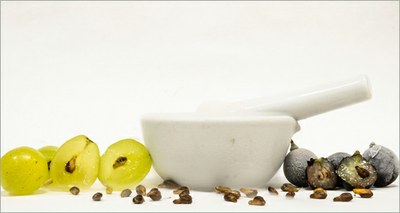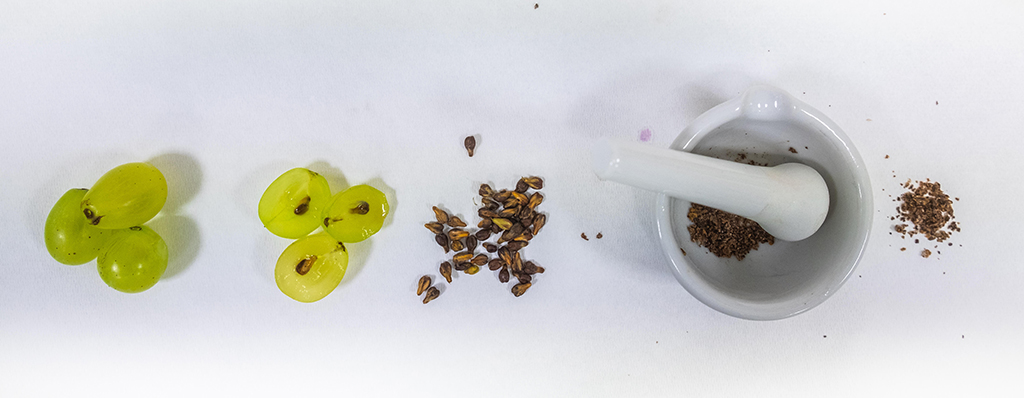Health: Cancer, enhancing efficacy of treatment with grape seeds
5/12/2019
 New prospects in the fight against malignant mesothelioma, a rare and aggressive form of cancer that affects the mesothelium, a tissue that covers most of our internal organs.
New prospects in the fight against malignant mesothelioma, a rare and aggressive form of cancer that affects the mesothelium, a tissue that covers most of our internal organs.
A study by ENEA, CNR (the National Research Council of Italy) and Università “Federico II” (Naples) (UNINA) showed that certain molecules contained in the seeds of the acinus (grape seeds) of the grapes of the Aglianico and Falanghina varieties are capable of blocking the growth of mesothelioma cells and may enhance the efficacy of the standard pharmacological therapies (chemotherapy) used for the treatment of this tumour.
The research was published in the international journal, “Journal of Functional Foods”. The studies undertaken by ENEA aimed at characterizing the metabolic extracts obtained from the skins and seeds of two varieties of vines from the Campania region. It emerged that the seeds from the Aglianico grape, above all, are very rich in proanthocyanins (special molecules with marked antioxidant properties), which can induce apoptosis – i.e. cell death − mechanisms in mesotheliomas (even in cases of cancer cell lines displaying drug resistance).
The molecular investigation carried out by the team of geneticists of UNINA’s Department of Agriculture revealed high activity of the genes associated with the biosynthesis of proanthocyanidins. Tallying with the data on metabolites, expression of these genes appeared to be markedly influenced by the tissue (higher in grape seeds than in the skins) and the grape variety (higher in the Aglianico variety than in the Falanghina variety).
Previous research by the CNR in Naples − aimed at studying the efficacy of anti-inflammatory agent-chemotherapy combined treatment − noted a marked resistance to drugs in specific cells, which severely limited efficacy. These same cells have now been found to be sensitive to grapeseed extract treatment. “Despite the rarity of this disease, associated with exposure to asbestos fibres[1], the incidence of mesothelioma is increasing worldwide by 5.4% per year, and diagnosis often comes late, both because of the symptomatology similar to that of many other diseases and because the tumour develops after a long period of latency” remarked Stefania Crispi of CNR. Gianfranco Diretto from the ENEA Biotechnologies Laboratory and Riccardo Aversano from the UNINA Department of Agriculture add that “Since mesothelioma is markedly chemo-resistant, the study of new therapeutic approaches based on the use of substances extracted from grape seeds in combination with chemotherapeutic drugs may represent a new adjuvant tool in the fight against this tumoral form, especially considering the absence of cytotoxic effects on healthy cells”.

For further information, follow the link to the study https://www.sciencedirect.com/science/article/abs/pii/S1756464619304396
